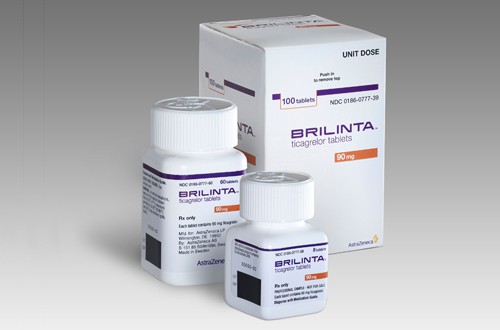
AstraZeneca (AZ) is celebrating after the US Department of Justice closed out its investigation into the PLATO clinical trial, clearing the way for the company to start a push its antiplatelet Brilinta.
The DoJ started its probe last year after repeated accusations about the reliability of the data from the study which raised questions about the efficacy of Brilinta (ticagrelor) and suggested some of the endpoints with Brilinta had not been recorded properly.
Several months on, the DoJ has concluded there is no case for AZ to answer in its handling of the trial and says it will be taking no further action over the drug, which is used to treat patients with acute coronary syndrome (ACS).
“We have always had absolute confidence in the integrity of the PLATO trial,” said AZ chief executive Pascal Soriot in a statement released yesterday.
“As one of AZ’s growth platforms, we are committed to delivering the full potential of this important medicine,” he added.
Brilinta was launched in 2011 on the back of the PLATO trial results, but from the off it faced debate about the way the trial had been designed, particularly divergent results from different regions of the world and suggestions that some cardiovascular events or deaths in the trial had not been included in the final dataset.
Specifically, there was a trend towards worse clinical outcomes with ticagrelor at clinical sites in North America, and some researchers maintained that most of the positive data points in the study came from just two countries – Poland and Hungary – which accounted for more than a fifth of all patients enrolled. There were also assertions that patients monitored by AZ had better reported outcomes than those monitored by an independent contract research organisation (CRO).
These assertions were quickly refuted by the trial investigators, but the persistent debate about the trial’s design drew the attention of the federal authorities in the US. If data falsification was proved there could have been serious ramifications including the withdrawal of the drug from the market and hefty fines.
Once billed as a blockbuster-in-waiting that would step into the premium antiplatelet space vacated by the genericisation of Sanofi’s multibillion dollar-selling Plavix (clopidogrel), Brilinta has struggled to make progress against the headwinds of the data controversy.
First-half sales of the drug (which is sold as Brilique in Europe) were just $216m, a far cry from the $7bn Plavix made at its peak in 2011, but with the DoJ probe behind it AZ can now start to build the franchise with renewed vigour. In May, whilst in the midst of its defence against takeover by Pfizer, AZ suggested Brilinta has the potential to become a $3.5bn product by 2023.
AZ can now concentrate on promoting the drug in ACS and extending its indications on the back of ongoing studies such as SOCRATES in ischaemic stroke, THEMIS in atherosclerosis and EUCLID for peripheral artery disease (PAD).




